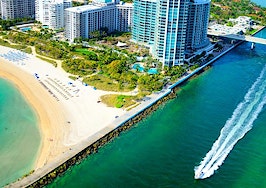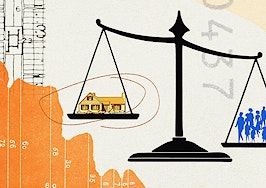- The unemployment rate was higher in June compared to a year ago in 75 metro areas, and it was unchanged in 27 areas.
- The national unemployment rate in June was 5.1 percent – down from 5.5 percent the same month last year.
- The largest year-over-year decrease in unemployment was in Los Angeles, while the largest jump was reported in Houston.
In localized markets throughout the nation, unemployment rates are typically faring well, which is great news for real estate agents. According to local unemployment rates by the Bureau of Labor Statistics (BLS), unemployment rates dipped annually in June in 285 out of 387 metropolitan areas.
According to the BLS, the unemployment rate was higher in June than a year ago in 75 metro areas throughout the nation, and it remained unchanged in 27 areas. Of all the areas considered, eight of them had an unemployment rate less than 3 percent, while six were on the other end of the spectrum with jobless rates above 10 percent.
The national unemployment rate in June was 5.1 percent, the BLS says, which is down from 5.5 percent the same month last year.
Considering just the largest 51 metropolitan areas (metros with a population of 1 million or more), the lowest unemployment rate was seen in Austin-Round Rock, at 3.3 percent.
And while Austin’s job seekers are seeing more opportunities than most, their counterparts in Houston aren’t as well off. The largest yearly unemployment increase was seen in Houston-The Woodlands-Sugar Land in June, where the jobless rate increased 0.7 percent.
The Houston unemployment rate in June 2016 was reported at 5.5 percent, an increase over 4.8 percent in May 2016. Texas’ state-wide unemployment rate was 4.8 percent in June, rising from 4.2 percent the previous month.
Los Angeles was home to the largest annual rate decrease in June 2016, at 1.3 percent, bringing the jobless rate to 5 percent. However L.A.’s unemployment rate increased month-over-month, from 4.1 percent in Mat.
Higher than the average
Washington D.C.’s unemployment rate in June 2016 was 6.1 percent, the BLS says, down from 7.1 percent the year prior. However, despite D.C. having a high unemployment rate, the Washington-Arlington-Alexandria metro’s unemployment was reported at 3.9 percent.
Heading south to Florida, the unemployment rate in the Miami-Fort Lauderdale-West Palm Beach metro was 5 percent; year-over-year, the jobless rate increased 0.3 percent. In Miami-Miami Beach-Kendall, the rate was just a bit higher, at 5.4 percent — representing a monthly dip of 1 percent.
In the Midwest, Illinois as a whole had an unemployment rate of 6 percent. Anchored by the Chicagoland area, the Illinois jobless rate increased from 5.6 percent over the previous month. In the Chicago-Naperville-Elgin metro, the unemployment rate was the same as the statewide level.
Getting more granular, in the Chicago-Naperville-Arlington Heights area, the unemployment rate was reported at 6.2 percent. The lowest reported unemployment rate in the Chicagoland area was 4.9 percent in Lake County-Kenosha County along the Illinois-Wisconsin border.
Above par
The San Francisco Bay Area is home to one of the lowest unemployment rates in the country, according to the BLS data. The San Francisco-Oakland-Hayward area had a jobless rate of 4.2 percent in June 2016, down from 4.3 percent a year prior. The lowest rate in the area was in San Francisco-Redwood City-South San Francisco, where the jobless rate was 3.4 percent.
All the way across the country in New York-Newark-Jersey City, residents are just a sliver less likely to have a job than those in the Bay Area. The unemployment rate in the NYC metropolitan area was reported at 4.7 percent in June 2016. In New York-Jersey City-White Plains, the unemployment rate was 4.8 percent.














